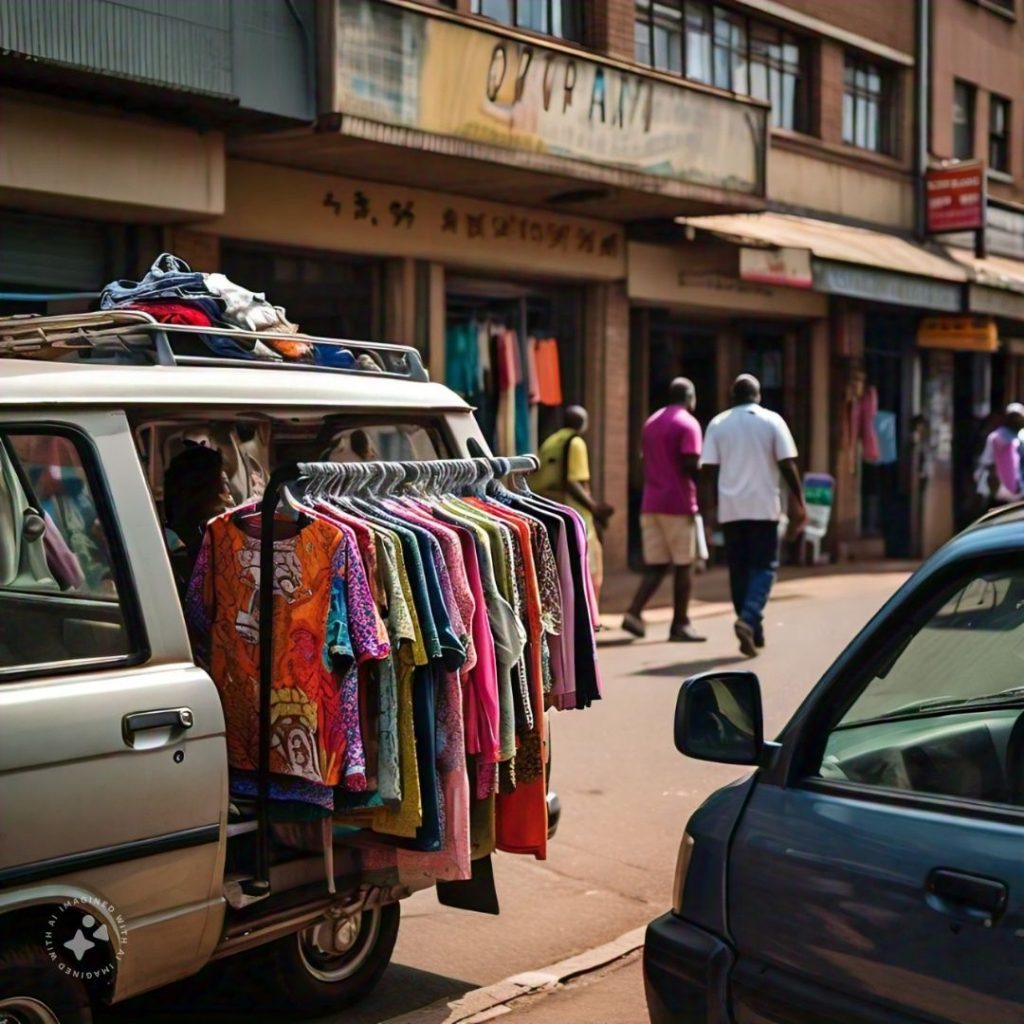
Emerging from the salon, I caught my reflection in the window – a satisfying reward for the afternoon’s pampering. Stepping outside, I reveled in the retail therapy of window-shopping, mentally adding treasures to my (probably unrealistic) shopping cart. Suddenly, a voice shattered the daydream.
“My sister!” a man exclaimed a touch too loudly. “Even without makeup, your skin is glowing! I saw you from afar and could not miss this chance to speak with you.” He continued, his eyes flickering nervously, “I sell, well, let us just say creatively sourced facial creams. Normally they are $30 a bottle in stores, but for you, I am willing to sell for just $10! In exchange, promote them for me. Be my ‘brand ambassador.’ Let me show you some messages I have received from satisfied clients.”
He went on to open his phone messages, and I honestly do not know where I found the patience to listen attentively as he bragged about his “business” success. There were indeed many messages. If he had the audacity to be so blatantly honest with a complete stranger, what did those messages say about the people on the other end? Telling him I do not buy “stolen” goods did not deter him. The price dropped to $5 and finally to $3. All he wanted was the business my flawless skin would bring. He even claimed to be a believer and a churchgoer, but insisted this is where the “state” of the economy had brought him. The absurdity of it all hit me. Here I was, being propositioned by a thief to become a “brand ambassador” – a term tossed around like confetti these days, where image clearly trumps substance.
After parting ways, a recent interview flickered in my mind. A woman, incarcerated for drug trafficking, spoke with a disturbing fondness for her past as a prostitute. She referred to herself as a “thigh vendor,” a euphemism as jarring as the stolen creams.
These encounters, a microcosm of a larger malaise, were deeply disturbing. Where are we headed as a society? When did we become so adept at camouflaging social ills with a sparkling veneer? Is this a reflection of our struggling economy, or a more profound character flaw, one that has simply found fertile ground in desperate times? Are we witnessing a more fundamental shift in our values?
The Tightrope Walk: Morality in a Strained Economy
We cannot understand this dilemma without considering the interplay between economic conditions and individual actions. Economic hardship can undoubtedly force people to take desperate measures. It is a precarious tightrope walk, a gut-wrenching tug-of-war between survival and integrity. We understand the desperation that can fuel bad decisions. The weight of unpaid bills, dwindling opportunities, and the constant worry of keeping a roof overhead and food on the table can feel like a suffocating vise tightening around our throats, squeezing air right out of our lungs. In these moments, the line between right and wrong crumbles. However, this challenging reality does not fully explain the glamorization of such activities.
Many cultures have undergone a shift in values. Material success and social status are often prioritized over integrity and ethical behaviour. This change is fueled by media representations and social narratives that glorify individuals who achieve wealth and fame, regardless of the means. This begs the question: How can we redirect these values and create a society that celebrates genuine success, integrity, and community well-being?
Sustainable Solutions: The following list outlines potential solutions to address the complex issues of economic hardship and moral behavior. It is not intended to be a definitive or exhaustive list. We encourage further research to develop a comprehensive approach.
- Building a moral compass starts with education and awareness. Schools can integrate values-based education, financial literacy, and ethical decision-making into their curriculum. Community programs can offer workshops on ethical leadership, positive role models, and the societal impact of crime. Skill development training equips individuals for the workforce, fostering personal and professional growth.
- Strong social support systems are vital. Accessible mental health services address underlying issues that might lead individuals astray. Community support networks offer resources and encouragement through mentorship programs and peer-support groups.
- Economic empowerment is key. Governments and organizations can create inclusive employment opportunities by pairing job openings with skill-training programs. Microfinance programs or grants can support small business development, fostering economic stability and deterring criminal activity.
- Media plays a crucial role in shaping values. Highlighting positive role models who succeed through hard work and ethical behavior can inspire others. Companies should prioritize responsible advertising that promotes positive values and community well-being, avoiding the glorification of illegal or unethical activities.
The state of the economy and the state of character are deeply intertwined. We cannot hope to address one without considering the other. The challenges we face as nations demand a two-pronged approach that tackles economic hardship while simultaneously nurturing a culture that values integrity and ethical behavior. While economic conditions can undoubtedly influence behavior, it is ultimately our values and societal norms that shape our responses. By addressing both economic and cultural factors, we can build a society that celebrates genuine success, personal responsibility, and the well-being of all. This holistic approach will not only reduce crime but also foster a community where everyone has the opportunity to thrive. Let us rise to this challenge, together, and create a future where a strong economy and strong character go hand in hand.




